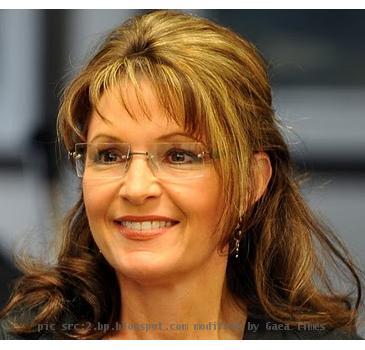Alaskans mourn death of Walter Hickel, former governor and Nixon Cabinet member, at age 90
By Becky Bohrer, APSaturday, May 8, 2010
Alaskans mourn death of former Gov. Walter Hickel
SITKA, Alaska — Alaskans on Saturday mourned the loss of former Gov. Walter J. Hickel and remembered him as a visionary and a maverick.
Alaska Democrats, meeting for their convention in Sitka, had a moment of silence in honor of Hickel, who served as Interior secretary under President Richard Nixon until Hickel was dismissed for objecting to the treatment of Vietnam War protesters.
A ripple of “Oh!” and “Oh, my God” rippled through the audience as word of his death, at age 90, was announced Saturday morning.
Hickel, a two-time Alaska governor, died Friday of natural causes at an Anchorage assisted living facility, said his longtime assistant, Malcolm Roberts.
Gov. Sean Parnell ordered state flags flown at half-staff in Hickel’s honor.
“He taught us to dream big and to stand up for Alaska,” Parnell said. “Gov. Hickel will be remembered for many things — for his wit, for telling it like it is, and for always reminding us that our resources belong to Alaskans.”
Alaska’s congressional delegation eulogized Hickel for his vision, courage and for putting Alaska’s interests first.
Ethan Berkowitz, a former state legislator and Democrat running for governor, recounted how, when he was being sworn in as a young assistant district attorney, a copy of the Bible couldn’t be found — so a copy of Hickel’s 1971 book, “Who Owns America,” was used instead.
Hickel said “If it’s good for Alaska, do it, and if it isn’t, screw it,” Berkowitz said. He said he considers Hickel a mentor.
Hickel’s political career started in the early 1950s as a crusader for Alaska statehood, both at home and in Washington. He also was involved in the Alaska Native Claims Settlement Act, which helped pave the way for the trans-Alaska oil pipeline.
Hickel’s was a quintessential Alaska rags-to-riches story. Born Aug. 18, 1919, in Claflin, Kan., he arrived nearly penniless in the small city of Anchorage in 1940, taking advantage of the city’s rapid growth following World War II to build a multimillion-dollar construction and real-estate fortune.
“I used to think about all the great countries of the world where I might want to go, because there was no room or opportunity in Kansas for me to do the things I wanted to do,” he wrote in “Who Owns America.”
Hickel had never held elected office when he upset two-term Democratic Gov. William Egan in 1966.
Hickel resigned in 1969 to become Interior secretary and quickly made national headlines as the environmental movement began to take root in America.
Hickel imposed stringent cleanup regulations on oil companies and water polluters after an oil rig explosion off the coast of Santa Barbara, Calif. He also fought to save the Everglades from being destroyed by developers and advocated for making Earth Day a national holiday.
An “Alaska boomer” with complex views on environmentalism and developing the state’s oil-rich resources, Hickel railed against “locking up” the Arctic National Wildlife Refuge from oil drilling and used settlement money from the Exxon Valdez oil spill lawsuit to help repair Prince William Sound.
He frequently described Alaska as an “owner state” and advocated that the state’s wild frontier should be developed responsibly to preserve its value.
Hickel was fired from his Interior post in late 1970 after sending Nixon a letter critical of how the president handled student protests following the National Guard shootings at Kent State and the U.S. invasion of Cambodia.
The letter helped to stir national debate about the growing generational rift over the Vietnam War.
“I believe this administration finds itself today embracing a philosophy which appears to lack appropriate concern for the attitude of a great mass of Americans — our young people,” Hickel wrote.
He never quite left politics. In 1990, at age 71 and after several unsuccessful gubernatorial bids, Hickel won the job a second time.
But his four years as governor were marked by frequent run-ins with legislators put off by his sometimes autocratic style, and with environmentalists critical of his unabashed support for natural resource development. Hickel chose to not run for re-election in 1994, and Democrat Tony Knowles took over.
Hickel was an early supporter of former Alaska Gov. Sarah Palin during her campaign in 2006. That support waned after she became Republican John McCain’s running mate in the 2008 presidential race.
In a September 2009 guest column in the Anchorage Daily News, he decried what he said was her penchant for partisan politics during the campaign.
“Palin became the spokesperson for the divisive voices in American politics. She dismissed the greatness of our immigrant heritage, indeed of today’s Alaska, where in Anchorage alone nearly 100 languages are spoken in the homes of the children in our public schools,” he wrote.
“She missed a golden opportunity to challenge the rest of the country to adopt the welcoming spirit of the Alaska frontier and the message of mutual respect,” he wrote.
Palin said via her Twitter feed that Hickel made a “real difference in the world. Unsurpassed impacts on Alaska, the Arctic and her people.”
Bill Walker, a Republican running for governor, also went to Twitter to call Hickel “instrumental in putting Alaska on the world map. He will be remembered as our finest, feistiest champion and ambassador.”
U.S. Sen. Lisa Murkowski, R-Alaska, called Hickel a “fighter for statehood and a champion of the lands claims of Alaska’s Native peoples.” She said he left a “lasting legacy for generations to follow.”
“We’ve truly lost a giant figure whose leadership greatly influenced Alaska’s birth, its present and its future,” she said.
U.S. Rep. Don Young, R-Alaska, said Hickel’s “courage, tenacity and independence” helped demonstrate “what it really meant to be an Alaskan.”
U.S. Sen. Mark Begich, D-Alaska, said the state “lost one of its true visionaries” with Hickel’s passing.
Hickel is survived by his wife, his sons, 21 grandchildren and 7 great grandchildren.A funeral Mass was scheduled for 5 p.m. May 17 at Our Lady of Guadalupe Catholic Church in Anchorage, with an hourlong visitation before the Mass.
The governor’s family welcomes the public to attend, Roberts said.
Associated Press Writer Mark Thiessen in Anchorage contributed to this report.
Tags: Alaska, Anchorage, Environmental Activism, North America, Obituaries, Personnel, Sarah Palin, Sitka, United States

